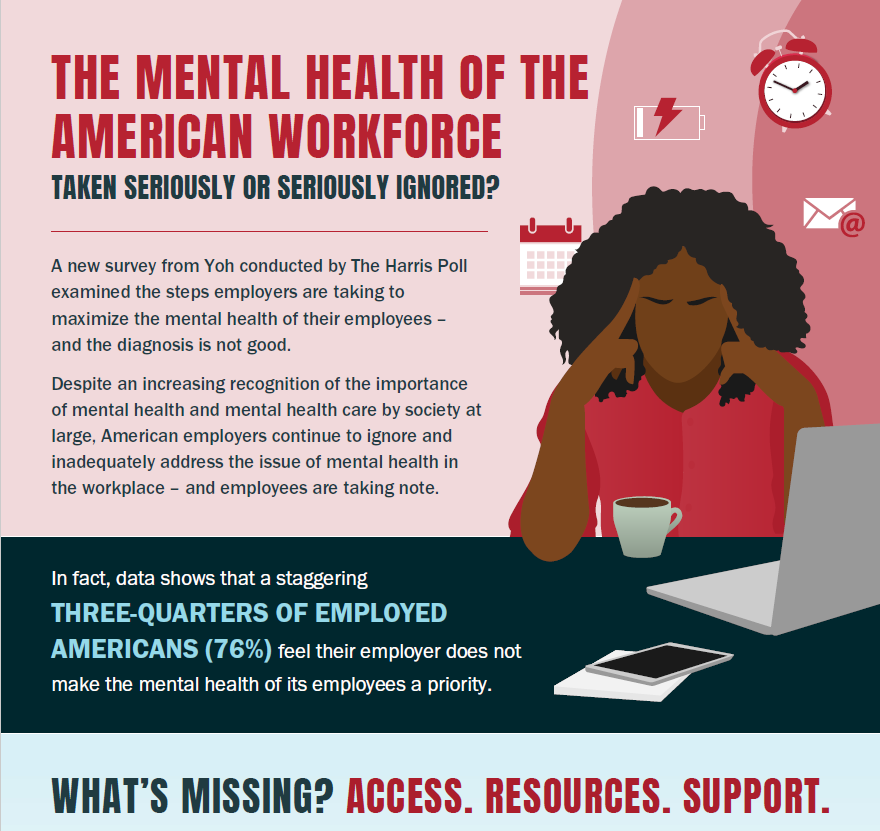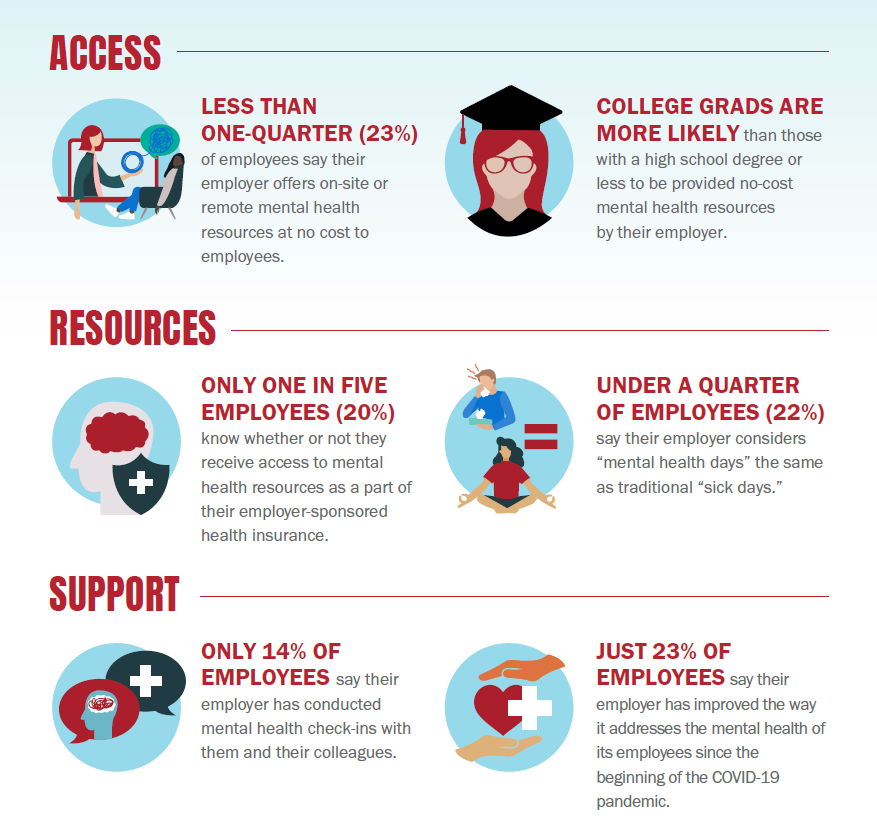New Yoh Survey Shows 68% of Employed Americans Face Issues with Their Workplace Software Technology
Software Technologies Always Changing, Adding New Software Technologies, Lack of Software...
%20Size%20Photos/GettyImages-1273511060.jpg?width=779&height=726&name=GettyImages-1273511060.jpg)
Latest Yoh Survey Reveals That Employers Are Not Taking Mental Health Seriously Enough; Results Suggest Employer-sponsored Mental Health Resources and Healthcare Options for Mental Health Are Limited
%20Size%20Photos/GettyImages-1273511060.jpg?width=350&name=GettyImages-1273511060.jpg)
PHILADELPHIA, PA (August 25, 2022) – The pandemic has reshaped not only how people work, but how the world collectively thinks about and recognizes the importance of mental health in and out of the workplace. Yet, according to a new survey from Yoh, a leading international talent and outsourcing company and part of Day & Zimmermann, employers are failing to answer the call.
Data shows that a staggering three-quarters of employed Americans (76%) feel their employer does not make the mental health of its employees a priority. The survey was conducted online by The Harris Poll on behalf of Yoh among 1,077 Americans ages 18+ who are employed full- or part-time.
Despite the increased conversation surrounding the importance of proper mental health and mental health care, the Yoh survey found that many employees are either not provided enough resources from employers to properly take care of their mental health or are simply not aware of what their employer even offers. The survey found:
“With how much focus has been placed on mental health over the past two-plus years – rightfully so – it is somewhat shocking to see that employees are not being provided with the right amount of mental health resources and support from their employers. This should be a wake-up call for companies across industries,” said Emmett McGrath, President, Yoh.
“More and more, we are seeing candidates ask questions during the recruitment process about how much an employer prioritizes mental health – in terms of health care options, flexibility, paid time off, and more. Those businesses that do not take the mental health of their employees seriously are not only losing out on potential talent but also risk losing their current staff to employers that do make it a priority. Worker turnover during the so-called ‘Great Resignation’ isn’t just coming from talent receiving higher salary offers but also more robust healthcare and wellness offerings that emphasize the critical importance of a more balanced life and proper mental health.”
See the infographic below for an overview:



This survey was conducted online within the United States by The Harris Poll on behalf of Yoh from April 8-10, 2020 among 993 U.S. adults ages 18 and older employed full/part time. This online survey is not based on a probability sample and therefore no estimate of theoretical sampling error can be calculated. For complete survey methodology, including weighting variables and subgroup sample sizes, please contact Joe McIntyre at joe@gobraithwaite.com.
Kevin Yurick serves as Vice President, Marketing & Communications for Yoh. He's responsible for developing and managing marketing strategies, procedures and initiatives that help extend the value of Yoh’s rich content based marketing strategy more broadly. Kevin has over 20 years of knowledge and experience in both inbound and traditional marketing, communications, and design. His love of marketing is rooted in his strong design sense and passion from branding.

Software Technologies Always Changing, Adding New Software Technologies, Lack of Software...
October 28, 2020

69% of Employed Americans Say They Don’t Think They Would Be Able to Find a New Job During the...
May 21, 2020

Regardless of Job Satisfaction, Poor Management Could Be A Job Deal-Breaker for Many Employed ...
October 25, 2018